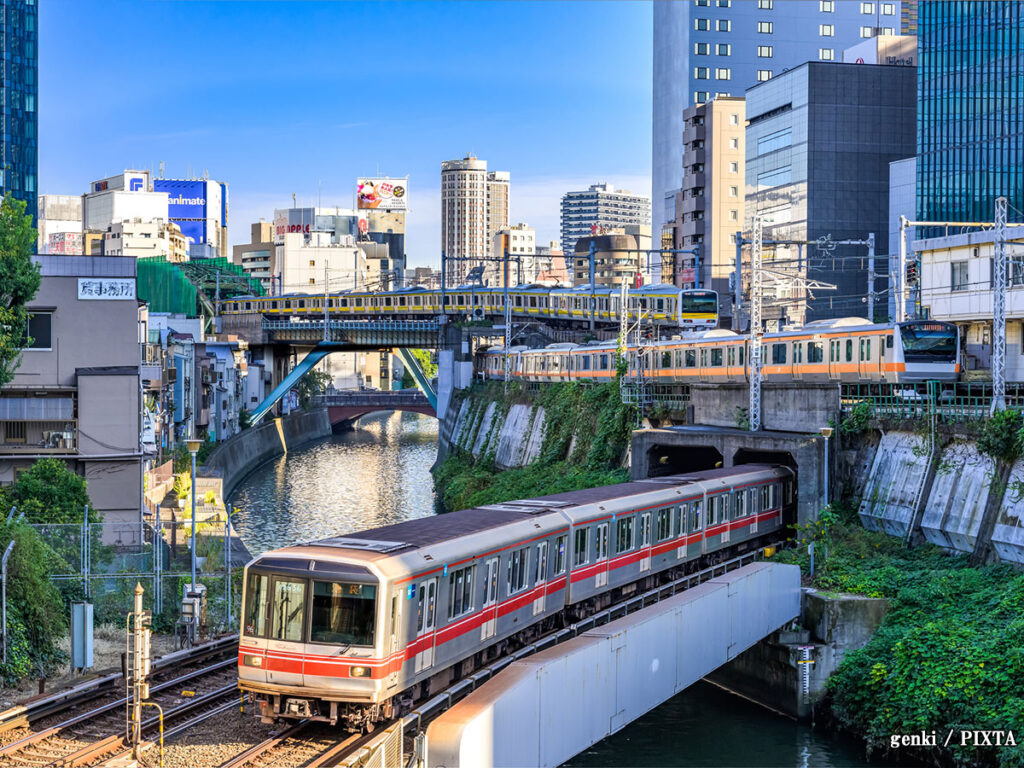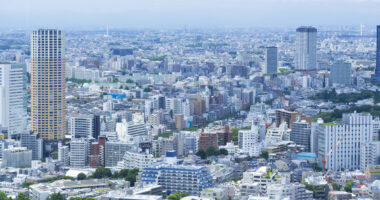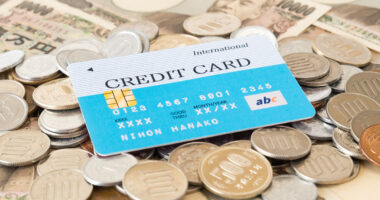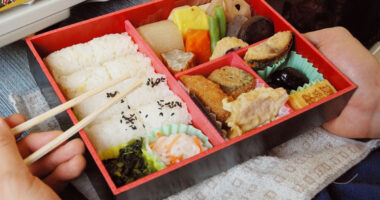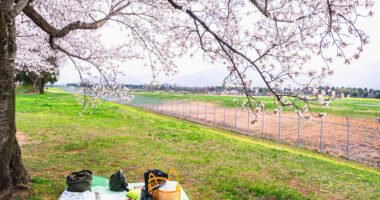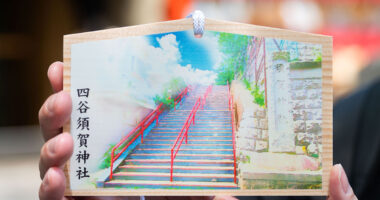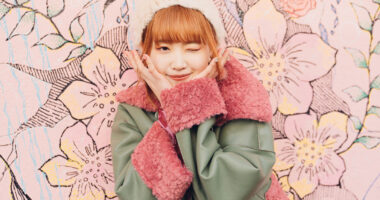When traveling in Japan, be mindful of local rules and manners when riding trains and buses. Here’s what to expect:
Before boarding
Walking
When you’re in the train station and on the platform, don’t use a smartphone, mobile gaming device or any other portable device while you’re on the move. Moreover, if you’re dragging a suitcase behind you, be mindful of others, especially in crowded situations.
Waiting
In Japan, it’s customary to form orderly lines while waiting for public transportation. Whether at a train platform, bus stop, or taxi stand, always queue up and wait your turn to ensure smooth boarding and alighting. Please don’t board without waiting for others to exit first.
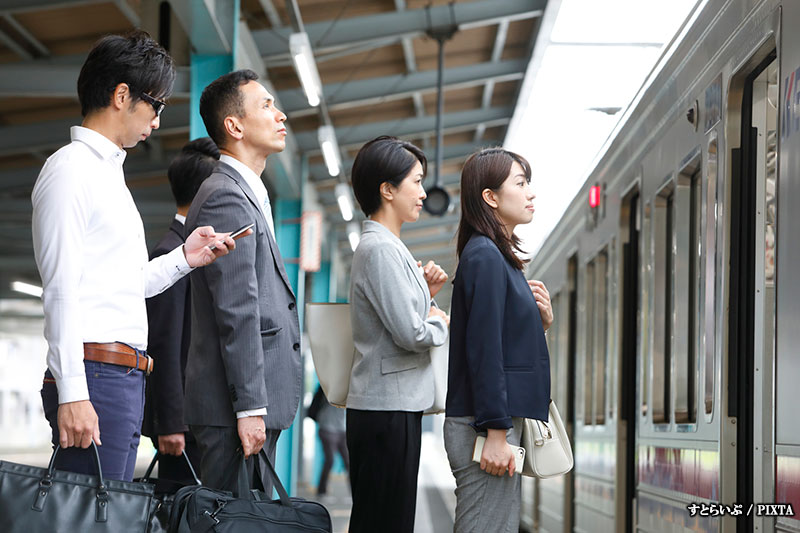
Form an orderly line while waiting for public transportation in Japan (photo for illustrative purposes)
Moreover, as you wait for the train, be mindful of selfie sticks on platforms, as you risk inconveniencing others and potentially causing accidents with moving trains, especially near the tracks. Some railway companies prohibit their use on the platform entirely, so check individual policies for details.
Boarding trains
Don’t dash into the train at the last minute. Not only do you run the risk of injuring yourself and others, both on the platform and in the train, but you could potentially cause train delays, inconveniencing numerous passengers throughout the train system.
Boarding buses
On almost all buses in Japan, there is a front and a back entrance/exit. Which one you use to board and pay the fare depends on the bus—in some cases, you pay the fare when you disembark—so please check in advance or follow what others are doing. Most Japanese buses only accept payment in cash or transportation-related electronic money.
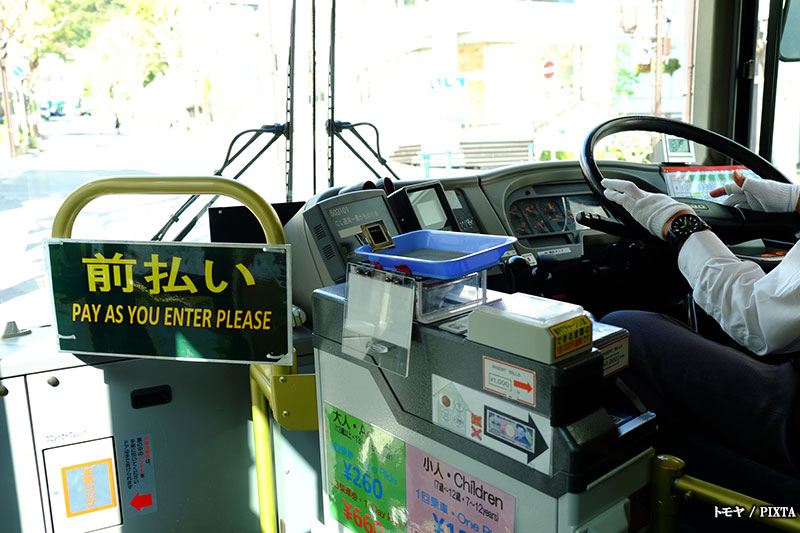
Photo for illustrative purposes
Women-only cars
Some trains have cars marked “for women only.” These cars allow female travelers to avoid sharing close quarters with male passengers. Male travelers should heed these signs and avoid boarding these cars. If you board the wrong car by accident, simply move to the next car via the sliding doors. Such carriages are women-only either at certain times or at all times, depending on the region.
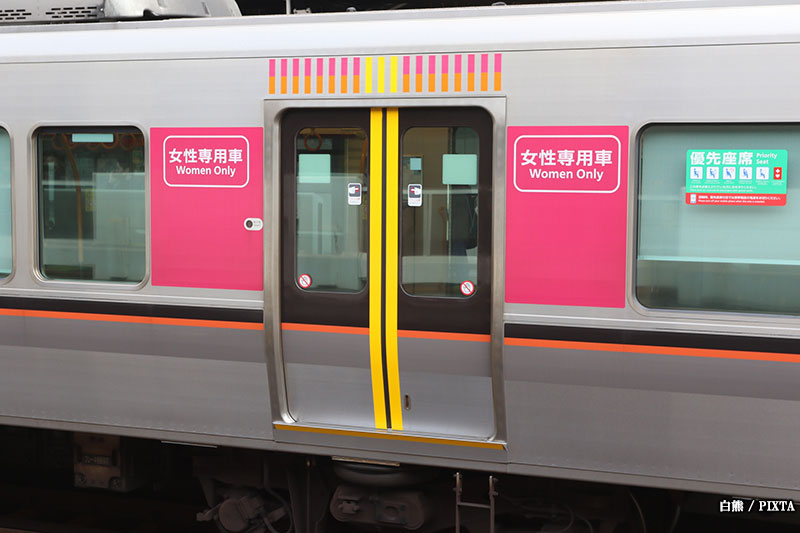
Some Japanese train lines have women-only carriages (photo for illustrative purposes)
While Riding
Space
Japan can be crowded, so respecting personal space is crucial. Avoid leaning on others, spreading your legs, or taking up more space than necessary. Hold onto straps or bars to maintain balance and avoid bumping into fellow passengers. Not respecting personal space, especially when spreading out on seats or during rush hours, is a common complaint.
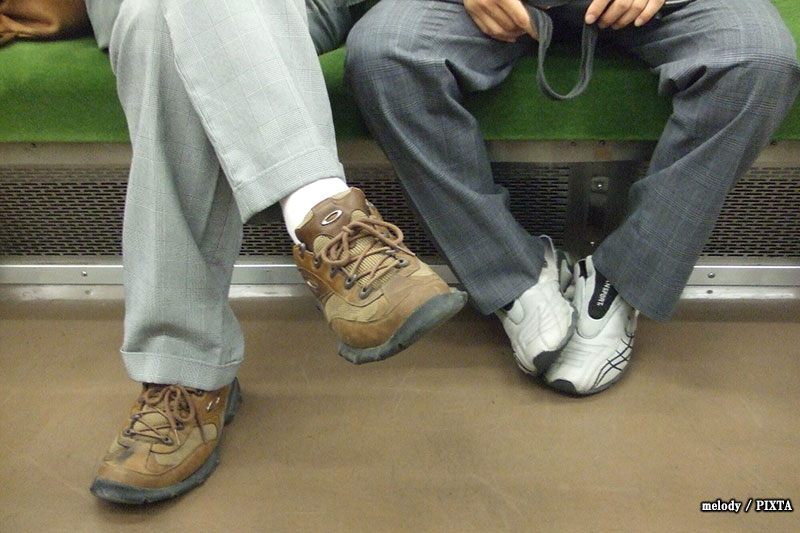
Avoid taking up more space than necessary (photo for illustrative purposes)
Additionally, with limited space on public transportation, be mindful of your luggage. Place large items on the rack, keep smaller items on your lap if seated, and hold backpacks down at your legs if standing. If you’re traveling by shinkansen (bullet train), certain routes have luggage size rules, so please look into them when reserving tickets. As an alternative, you can reduce hassle and free up space on public transportation by using same-day luggage delivery services offered by some airline carriers and private companies. Check with your chosen provider for details and availability.
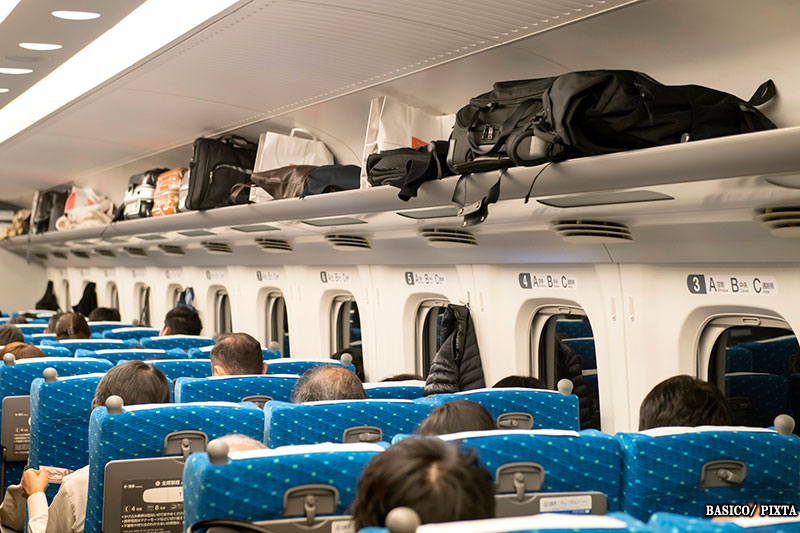
Place large items on overhead racks to avoid taking up limited space (photo for illustrative purposes)
Noise
Japanese trains and buses are remarkably quiet compared to those in many other countries. Loud conversations, phone calls, and music can be disruptive to others. If you need to speak, keep your voice low, and if you need to take a call, step off the train or bus at the next stop. If you’re listening to music or watching videos, use headphones and keep the volume at a level that won’t disturb others. Ensure that your entertainment remains personal, as leaking headphone noise is an annoyance.
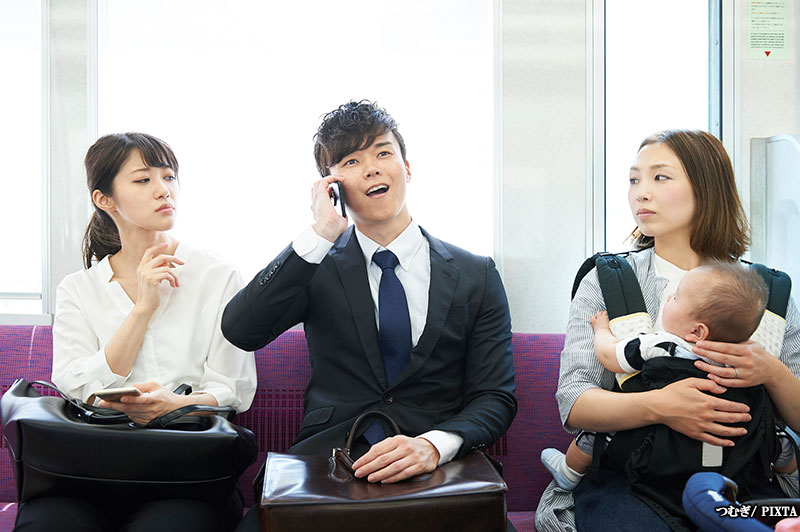
Avoid phone calls and loud conversations on public transportation in Japan (photo for illustrative purposes)
Eating and drinking
Eating and drinking on trains and buses are generally frowned upon, especially in crowded conditions. The smell of food can bother others, and spills can create a mess. Don’t litter, and if you need to eat, consider doing so before boarding or in designated areas. On long-distance trains like the Shinkansen, eating is more acceptable, and many passengers enjoy ekiben, a special type of bento sold at train stations.
Coughing and sneezing
As with many countries, it is good manners to cover your mouth when coughing or sneezing in Japan. Moreover, wearing a mask if you have a cough or cold is appreciated to prevent the spread of germs. Inconsiderate coughing or sneezing without covering the mouth is a frequent complaint on social media.
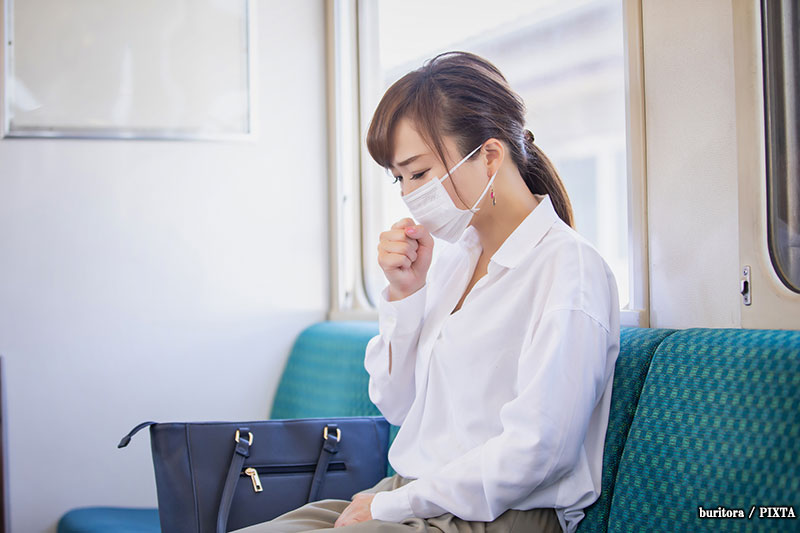
When riding public transportation in Japan, it’s recommended to wear a mask if you have a cough or cold (photo for illustrative purposes)
Unobstructed access
During busy times, it’s crucial to keep the doors of trains and buses clear to allow passengers to board and exit quickly. Don’t sit on the floor as it can obstruct passengers. If you’re standing near a door, be prepared to step out momentarily at each stop to let others pass through before re-entering.
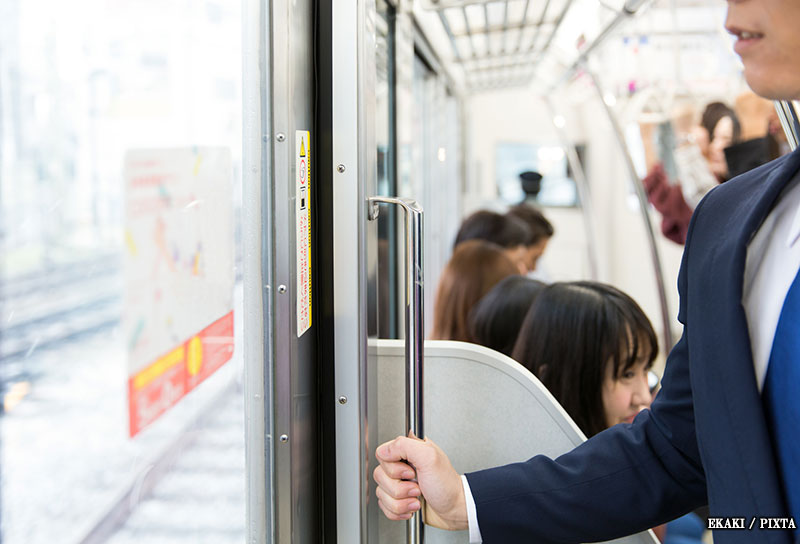
Be ready to step out momentarily to let others pass (photo for illustrative purposes)
By following these guidelines, you’ll ensure a pleasant and efficient public transportation experience for all. Respect and consideration are key in Japanese culture, helping you blend in and enjoy your journey. Safe travels!
